- Home
- F. Paul Wilson
The Keep ac-1 Page 9
The Keep ac-1 Read online
Page 9
... the British breaking through the German line in a surprise counterattack, the fire pinning down Kaempffer and Woermann and their whole company, men dying on all sides, the machine gunner hit and down, the British charging ... pull back and regroup, the only sane thing to do, but no word from the company commander ... probably dead ... Private Kaempffer seeing no one in his entire squad left alive except a new recruit, a green volunteer named Woermann sixteen years old, too young to fight... motioning to the kid to start moving back with him ... Woermann shaking his head and crawling up to the machine gun emplacement ... firing skittishly, erratically at first, then with greater confidence ... Kaempffer crawling away, knowing the British would be burying the kid later that day.
But Woermann had not been buried that day. He had held off the enemy long enough for the line to be reinforced. He was promoted, decorated with the Iron Cross. And when the Great War ended he was Fahnenjunker, an officer candidate, and managed to remain with the minuscule remnant of the army that was left after the Versailles debacle.
Kaempffer, on the other hand, the son of a clerk from Augsburg, found himself on the street after the war. He had been afraid and penniless, one of many thousands of veterans of a lost war and a defeated army. They were not heroes—they were an embarrassment. He wound up joining the nihilistic Freikorps Oberland, and from there it was not far to the Nazi Party in 1927; after proving his volkisch, his pure German pedigree, he joined the SS in 1931. From then on, the SS became Kaempffer's home. He had lost his home after the first war and had sworn he would never be homeless again.
In the SS he learned the techniques of terror and pain; he also learned the techniques of survival: how to keep an eye out for weaknesses in his superiors, and how to hide his own weaknesses from the aggressive men below him. Eventually, he maneuvered himself into the position of first assistant to Rudolf Hoess, the most efficient of all the liquidators of Jewry.
Again, he learned so well that he was elevated to the rank of Sturmbannführer and assigned the task of setting up the resettlement camp at Ploiesti.
He ached to get to Ploiesti and begin. Only the unseen killers of Woermann's men stood in his way. They had to be disposed of first. Not a problem, merely an annoyance. He wanted it taken care of quickly, not only to allow him to move on, but also to make Woermann look like the bumbler he was. A quick solution and he would be on his way in triumph, leaving Klaus Woermann behind, an impotent has-been.
A quick solution would also defuse anything Woermann might ever say about the incident at Verdun. If Woermann should ever decide to accuse him of cowardice in the face of the enemy, Kaempffer would need only point out that the accuser was an embittered, frustrated man striking out viciously at one who had succeeded where he had failed.
He turned off the lamp on the floor. Yes ... he needed a quick solution. So much to do, so many more important matters awaiting his attention.
The only thing that bothered him about all this was the unsettling, inescapable fact that Woermann was afraid. Truly afraid. And Woermann did not frighten easily.
He closed his eyes and tried to doze. After a while he felt sleep begin to slip over him like a warm, gentle blanket. He was almost completely covered when he felt it brutally snatched away. He found himself wide awake, his skin suddenly clammy and crawling with fear. Something was outside the door to his room. He heard nothing, saw nothing. Yet he knew it was there. Something with such a powerful aura of evil, of cold hate, of sheer malevolence, that he could sense its presence through the wood and the stone that separated it from him. It was out there, moving along the corridor, passing the door, and moving away. Away....
His heart slowed, his skin began to dry. It took a few moments, but he was eventually able to convince himself that it had been a nightmare, a particularly vivid one, the kind that shakes you from the early stages of sleep.
Major Kaempffer arose from his bedroll and gingerly began removing his long underwear. His bladder had involuntarily emptied during the nightmare.
Privates Friedrich Waltz and Karl Flick, members of the first Death's Head unit under Major Kaempffer, stood in their black uniforms, their gleaming black helmets, and shivered. They were bored, cold, and tired. This was not the sort of night duty they were accustomed to. Back at Auschwitz they had had warm, comfortable guardhouses and watchtowers where they could sit and drink coffee and play cards while the prisoners cowered in their drafty shacks. Only occasionally had they been required to do gate duty and march the perimeter in the open air.
True, here they were inside, but their conditions were as cold and as damp as the prisoners'. That wasn't right.
Private Flick slung his Schmeisser behind his back and rubbed his hands together. The fingertips were numb despite his gloves. He stood beside Waltz who was leaning against the wall at the angle of the two corridors. From this vantage point they could watch the entire length of the entry corridor to their left, all the way to the black square of night that was the courtyard, and at the same time keep watch on the prison block to their right.
"I'm going crazy, Karl," Waltz said. "Let's do something."
"Like what?"
"How about making them fall out for a little Sachsengruss?"
"They aren't Jews."
"They aren't Germans, either."
Flick considered this. The Sachsengruss, or Saxon greeting, had been his favorite method of breaking down new arrivals at Auschwitz. For hours on end he would make them perform the exercise: deep knee bends with arms raised and hands behind the head. Even a man in top condition would be in agony within half an hour. Flick had always found it exhilarating to watch the expressions on the prisoners' faces as they felt their bodies begin to betray them, as their joints and muscles cried out in anguish. And the fear in their faces. For those who fell from exhaustion were either shot on the spot or kicked until they resumed the exercise. He and Waltz couldn't shoot any of the Romanians tonight, but at least they could have some fun with them. But it might be hazardous.
"Better forget it," Flick said. "There's only two of us. What if one of them tries to be a hero?"
"We'll only take a couple out of the room at a time. Come on, Karl! It'll be fun!"
Flick smiled. "Oh, all right."
It wouldn't be as challenging as the game they used to play at Auschwitz, where he and Waltz held contests to see how many of a prisoner's bones they could break and still keep him working. But at least a little Sachsengruss would be diverting.
Flick began fishing out the key to the padlock that had transformed the last room on the corridor into a prison cell. There were four rooms available and they could have divided the villagers up; instead, they had crowded all ten into a single chamber. He was anticipating the look on their faces when he opened the door—the wincing, lip-quivering fear when they saw his smile and realized they would never receive any mercy from him. It gave him a certain feeling inside, something indescribable, wonderful, something so addictive that he craved more and more of it.
He was halfway to the door when Waltz's voice stopped him.
"Just a minute, Karl."
He turned. Waltz was squinting down the corridor toward the courtyard, a puzzled expression on his face. "What is it?" Flick asked.
"Something's wrong with one of the bulbs down there. The first one—it's going out."
"So?"
"It's fading out." He glanced at Flick and then back down the corridor. "Now the second one's fading!" His voice rose half an octave as he lifted his Schmeisser and cocked it. "Get over here!"
Flick dropped the key, swung his own weapon to the ready position, and ran to join his companion. By the time he reached the juncture of the two corridors, the third light had faded out. He tried but could make out no details of the corridor behind the dead bulbs. It was as if the area had been swallowed by impenetrable darkness.
"I don't like this," Waltz said.
"Neither do I. But I don't see a soul. Maybe it's the generator. Or a bad wire." Flick kne
w he didn't believe this any more than Waltz did. But he had had to say something to hide his growing fear. Einsatzkommandos were supposed to arouse fear, not feel it.
The fourth bulb began to die. The dark was only a dozen feet away.
"Let's move into here," Flick said, backing into the well-lit recess of the rear corridor. He could hear the prisoners muttering in the last room behind them. Though they could not see the dying bulbs, they sensed something was wrong.
Crouched behind Waltz, Flick shivered in the growing cold as he watched the illumination in the outer corridor continue to fade. He wanted something to shoot at but could see only blackness.
And then the blackness was upon him, freezing his joints and dimming his vision. For an instant that seemed to stretch to a lifetime, Private Karl Flick became a victim of the soulless terror he so loved to inspire in others, felt the deep, gut-tearing pain he so loved to inflict on others. Then he felt nothing.
Slowly the illumination returned to the corridors, first to the rear, then to the access passage. The only sounds came from the villagers trapped in their cell: whimpering from the women, relieved sobs from the men as they all felt themselves released from the panic that had seized them. One man tentatively approached the door to peer through a tiny space between two boards. His field of vision was limited to a section of floor and part of the rear wall of the corridor.
He could see no movement. The floor was bare except for a splattering of blood, still red, still wet, still steaming in the cold. And on the rear wall there was more blood, but this was smeared instead of splattered. The smears seemed to form a pattern, like letters from an alphabet he almost recognized, forming words that hovered just over the far edge of recognition. Words like dogs howling in the night, naggingly present, but ever out of reach.
The man turned away from the door and rejoined his fellow villagers huddled in the far corner of the room.
There was someone at the door.
Kaempffer's eyes snapped open; he feared that the earlier nightmare was going to repeat itself. But no. He could sense no dark, malevolent presence on the other side of the wall this time. The agent here seemed human. And clumsy. If stealth were the intruder's aim, he was failing miserably. But to be on the safe side, Kaempffer pulled his Luger from the holster coiled at his elbow.
"Who's there?"
No reply.
The rattle of a fumbling hand working the latch continued. Kaempffer could see breaks in the strip of light along the bottom of the door, but they gave no clue as to who might be out there. He considered turning on the lamp, but thought better of it. The dark room gave him an advantage—an intruder would be silhouetted against the light from the hall.
"Identify yourself!"
The fumbling at the latch stopped, to be replaced by a faint creaking and cracking, as if some huge weight were leaning against the door, trying to get through it. Kaempffer couldn't be sure in the dark, but he thought he saw the door bulge inward. That was two-inch oak! It would take massive weight to do that! As the creaking of the wood grew louder, he found himself trembling and sweating. There was nowhere to go. And now there was another sound, as if something were clawing at the door to get in. The noises assailed him, growing louder, paralyzing him. The wood was cracking so that it seemed it must break into a thousand fragments; the hinges cried out as their metal fastenings were tortured from the stone. Something had to give! He knew he should be chambering a shell into his Luger but he could not move.
The latch suddenly screeched and gave way, the door bursting open and slamming against the wall. Two figures stood outlined in the light from the hall. By their helmets, Kaempffer knew them to be German soldiers, and by their jackboots he knew them to be two of the einsatzkommandos he had brought with him. He should have relaxed at the sight of them, but for some reason he did not. What were they doing breaking into his room?
"Who is it?" he demanded.
They made no reply. Instead, they stepped forward in unison toward where he lay frozen in his bedroll. There was something wrong with their gait—not a gross disorder, but a subtle grotesquery. For one disconcerting moment, Major Kaempffer thought the two soldiers would march right over him. But they stopped at the edge of his bed, simultaneously, as if on command. Neither said a word. Nor did they salute.
"What do you want?" He should have been furious, but the anger did not come. Only fear. Against his wishes, his body was shrinking into the bedroll, trying to hide.
"Speak to me!" It was a plea.
No reply. He reached down with his left hand and found the battery lamp on the floor beside his bed, all the while keeping the Luger in his right trained on the silent pair looming over him. When his questing fingers found the toggle switch, he hesitated, listening to his own rasping respirations. He had to see who they were and what they wanted, but a deep part of him warned against turning on the light.
Finally, he could stand it no longer. With a groan, he flicked the toggle and held the lamp up.
Privates Flick and Waltz stood over him, faces white and contorted, eyes glazed. A gaping crescent of torn and bloodied flesh grinned down at him from the place where each man's throat had been. No one moved ... the two dead soldiers wouldn't, Kaempffer couldn't. For a long, heart-stopping moment, Kaempffer lay paralyzed, the lamp held aloft in his hand, his mouth working spasmodically around a scream of fear that could not pass his locked throat.
Then there was motion. Silently, almost gracefully, the two soldiers leaned forward and fell onto their commanding officer, pinning him in his bedroll under hundreds of pounds of limp dead flesh.
As Kaempffer struggled frantically to pull himself out from under the two corpses, he heard a far-off voice begin to wail in mortal panic. An isolated part of his brain focused on the sound until he had identified it.
The voice was his own.
"Now do you believe?"
"Believe what?" Kaempffer refused to look up at Woermann. Instead, he concentrated on the glass of kummel pressed between both palms. He had downed the first half in one gulp and now sipped steadily at the rest. By slow, painful degrees he was beginning to feel that he had himself under control again. It helped that he was in Woermann's quarters and not his own.
"That SS methods will not solve this problem."
"SS methods always work."
"Not this time."
"I've only begun! No villagers have died yet!"
Even as he spoke, Kaempffer admitted to himself that he had run up against a situation completely beyond the experience of anyone in the SS. There were no precedents, no one he could turn to for advice. There was something in the keep beyond fear, beyond coercion. Something magnificently adept at using fear as its own weapon. This was no guerrilla group, no fanatic arm of the National Peasant Party. This was something beyond war, beyond nationality, beyond race.
Yet the village prisoners would have to die at dawn. He could not let them go—to do so would be to admit defeat, and he and the SS would lose face. He must never allow that to happen. It made no difference that their deaths would have no effect on the ... thing that was killing the men. They had to die.
"And they won't die," Woermann said.
"What?" Kaempffer finally looked up from the glass of kummel.
"The villagers—I let them go."
"How dare you!" Anger—he began to feel alive again. He rose from his chair.
"You'll thank me later on when you don't have the systematic murder of an entire Romanian village to explain. And that's what it would come to. I know your kind. Once started on a course, no matter how futile, no matter how many you hurt, you keep going rather than admit you've made a mistake. So I'm keeping you from getting started. Now you can blame your failure on me. I will accept the blame and we can all find a safer place to quarter ourselves."
Kaempffer sat down again, mentally conceding that Woermann's move had given him an out. But he was trapped. He could not report failure back to the SS. That would mean the end of his career.
"I'm not giving up," he told Woermann, trying to appear stubbornly courageous.
"What else can you do? You can't fight this!"
"I will fight it!"
"How?" Woermann leaned back and folded his hands over his small paunch. "You don't even know what you're fighting, so how can you fight it?"
"With guns! With fire! With—" Kaempffer shrank away as Woermann leaned toward him, cursing himself for cringing, but helpless against the reflex.
"Listen to me, Herr Sturmbannführer: Those men were dead when they walked into your room tonight. Dead! We found their blood in the rear corridor. They died in your makeshift prison. Yet they walked off the corridor, up to your room, broke through the door, marched up to your bed, and fell on you. How are you going to fight something like that?"
Kaempffer shuddered at the memory. "They didn't die until they got to my room! Out of loyalty they came to report to me despite their mortal wounds!" He didn't believe a word of it. The explanation came automatically.
"They were dead, my friend," Woermann said without the slightest trace of friendship in his tone. "You didn't examine their bodies—you were too busy cleaning the crap out of your pants. But I did. I examined them just as I have examined every man who has died in this godforsaken keep. And believe me, those two died on the spot. All the major blood vessels in their necks were torn through. So were their windpipes. Even if you were Himmler himself, they couldn't have reported to you."
"Then they were carried!" Despite what he had seen with his own eyes he pressed for another explanation. The dead didn't walk. They couldn't!
Woermann leaned back and stared at him with such disdain that Kaempffer felt small and naked.

 Crisscross
Crisscross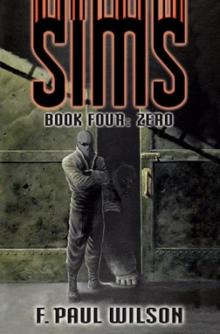 Ground Zero
Ground Zero Short Stories
Short Stories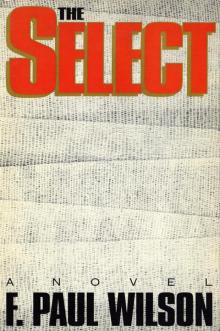 The Select
The Select Codename
Codename Bloodline
Bloodline A Soft Barren Aftershock
A Soft Barren Aftershock The Tomb
The Tomb The Complete LaNague
The Complete LaNague The Tery
The Tery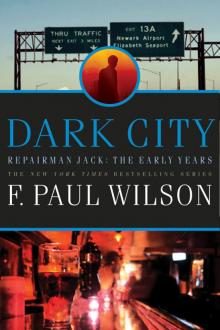 Dark City
Dark City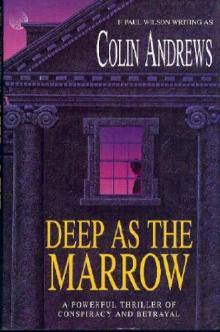 Deep as the Marrow
Deep as the Marrow The Fifth Harmonic
The Fifth Harmonic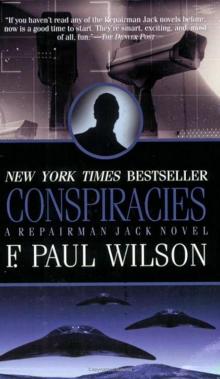 Conspiracies
Conspiracies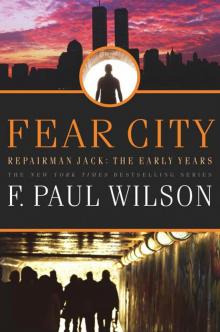 Fear City
Fear City Wheels Within Wheels
Wheels Within Wheels Wayward Pines
Wayward Pines The Portero Method
The Portero Method All the Rage
All the Rage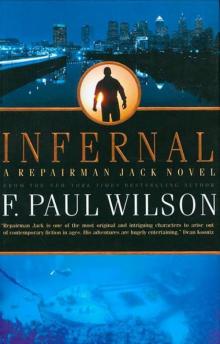 Infernal
Infernal The Barrens & Others
The Barrens & Others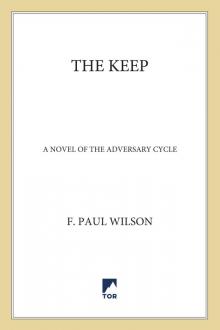 The Keep
The Keep Quick Fixes: Tales of Repairman Jack
Quick Fixes: Tales of Repairman Jack Virgin
Virgin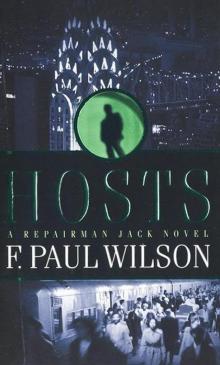 Hosts
Hosts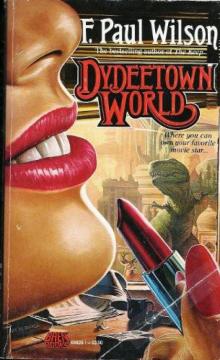 Dydeetown World
Dydeetown World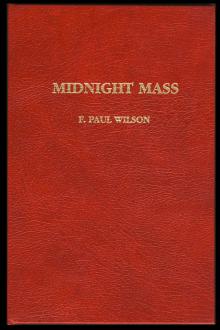 Midnight Mass
Midnight Mass Black Wind
Black Wind The Christmas Thingy
The Christmas Thingy The Last Rakosh
The Last Rakosh The Last Christmas: A Repairman Jack Novel
The Last Christmas: A Repairman Jack Novel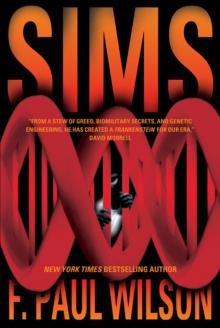 SIMS
SIMS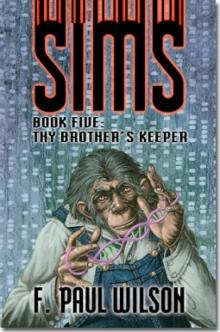 Thy Brother's Keeper
Thy Brother's Keeper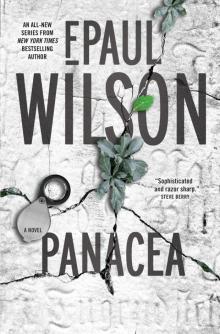 Panacea
Panacea The Touch
The Touch Scenes from the Secret History
Scenes from the Secret History Scenes From the Secret History (The Secret History of the World)
Scenes From the Secret History (The Secret History of the World)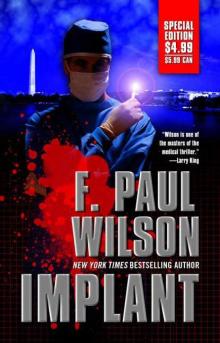 Implant
Implant The Dark at the End
The Dark at the End Fatal Error
Fatal Error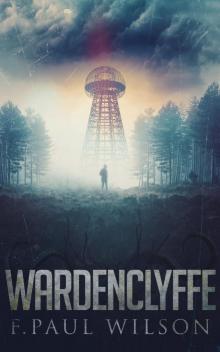 Wardenclyffe
Wardenclyffe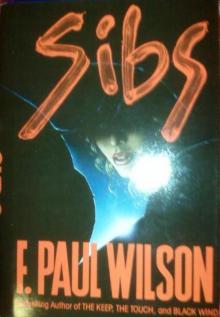 Sibs
Sibs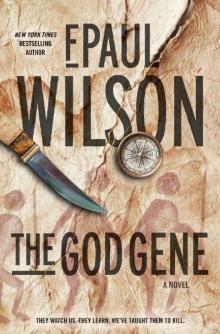 The God Gene
The God Gene The Void Protocol
The Void Protocol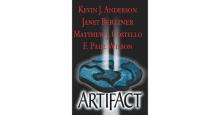 Artifact
Artifact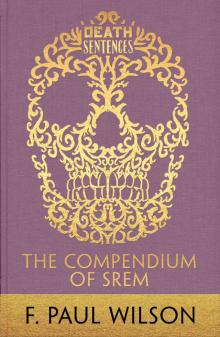 The Compendium of Srem
The Compendium of Srem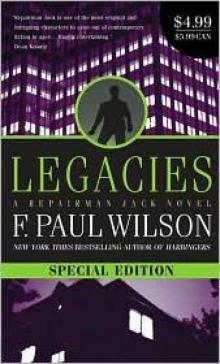 Legacies
Legacies Reprisal
Reprisal Jack: Secret Vengeance
Jack: Secret Vengeance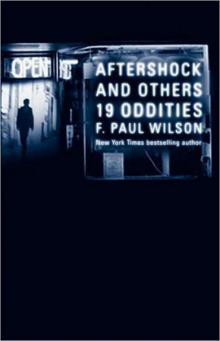 Aftershock & Others: 19 Oddities
Aftershock & Others: 19 Oddities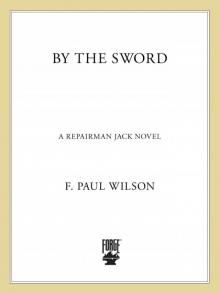 By the Sword
By the Sword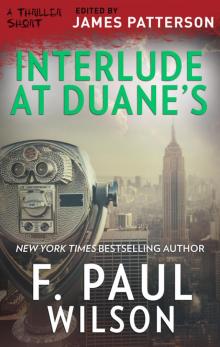 Interlude at Duane's (Thriller: Stories to Keep You Up All Night)
Interlude at Duane's (Thriller: Stories to Keep You Up All Night)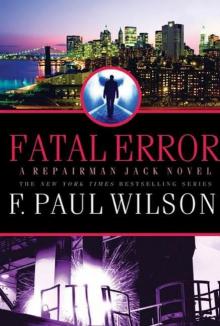 Fatal Error rj-13
Fatal Error rj-13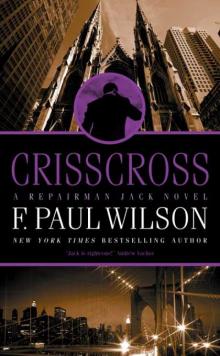 Crisscross rj-8
Crisscross rj-8 Codename: Chandler: Fix (Kindle Worlds Novella)
Codename: Chandler: Fix (Kindle Worlds Novella)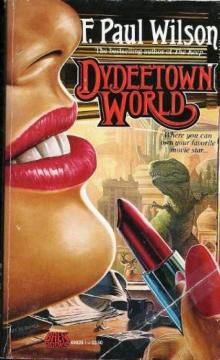 Dydeetown World lf-4
Dydeetown World lf-4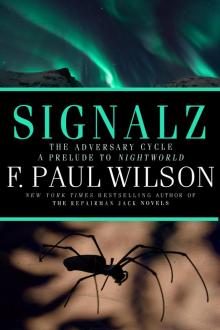 Signalz
Signalz Codename_Chandler_Fix
Codename_Chandler_Fix The Dark at the End (Repairman Jack)
The Dark at the End (Repairman Jack) The Complete Adversary Cycle: The Keep, the Tomb, the Touch, Reborn, Reprisal, Nightworld (Adversary Cycle/Repairman Jack)
The Complete Adversary Cycle: The Keep, the Tomb, the Touch, Reborn, Reprisal, Nightworld (Adversary Cycle/Repairman Jack)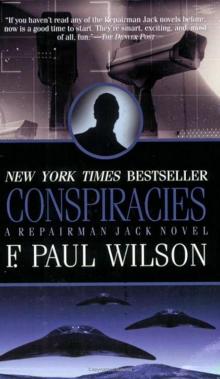 Repairman Jack 03 - Conspiracies
Repairman Jack 03 - Conspiracies Ground Zero rj-13
Ground Zero rj-13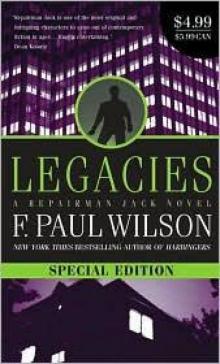 Repairman Jack 02 - Legacies
Repairman Jack 02 - Legacies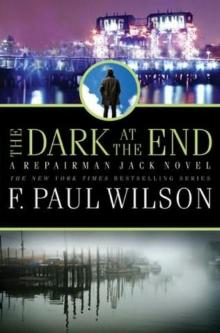 The Dark at the End rj-15
The Dark at the End rj-15![Repairman Jack [02]-Legacies Read online](http://i1.bookreadfree.com/i/03/21/repairman_jack_02-legacies_preview.jpg) Repairman Jack [02]-Legacies
Repairman Jack [02]-Legacies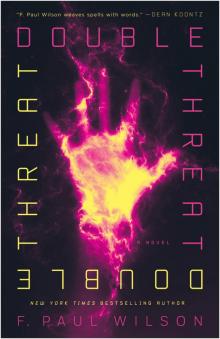 Double Threat
Double Threat The Tery lf-5
The Tery lf-5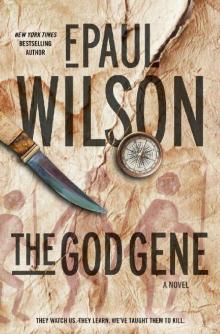 The God Gene: A Novel
The God Gene: A Novel Wayward Pines: The Widow Lindley (Kindle Worlds Novella)
Wayward Pines: The Widow Lindley (Kindle Worlds Novella)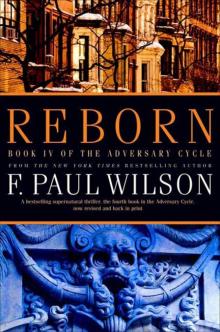 Reborn ac-4
Reborn ac-4 Reprisal ac-5
Reprisal ac-5 New Title 1
New Title 1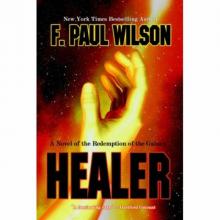 Healer lf-3
Healer lf-3 An Enemy of the State lf-1
An Enemy of the State lf-1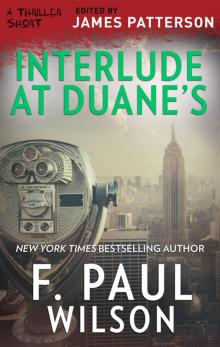 Interlude at Duane's
Interlude at Duane's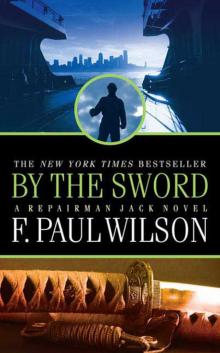 By the Sword rj-12
By the Sword rj-12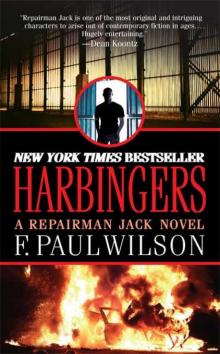 Hardbingers rj-10
Hardbingers rj-10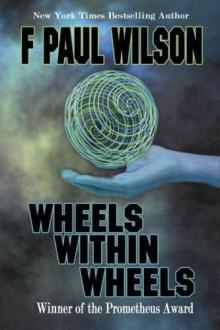 Wheels Within Wheels lf-2
Wheels Within Wheels lf-2 Jack: Secret Circles
Jack: Secret Circles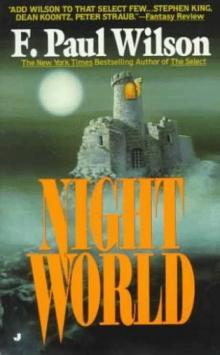 Nightworld ac-6
Nightworld ac-6 Quick Fixes - tales of Repairman Jack
Quick Fixes - tales of Repairman Jack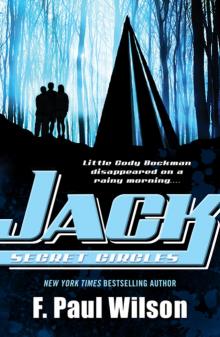 Secret Circles yrj-2
Secret Circles yrj-2 Jack: Secret Histories
Jack: Secret Histories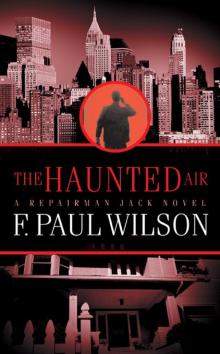 Haunted Air rj-6
Haunted Air rj-6 An Enemy of the State - a novel of the LaNague Federation (The LaNague Federation Series)
An Enemy of the State - a novel of the LaNague Federation (The LaNague Federation Series)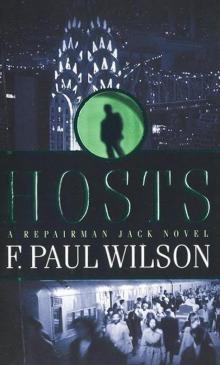 Repairman Jack 05 - Hosts
Repairman Jack 05 - Hosts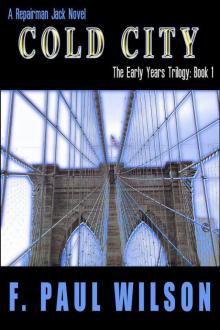 Cold City (Repairman Jack - the Early Years Trilogy)
Cold City (Repairman Jack - the Early Years Trilogy) The Peabody-Ozymandias Traveling Circus & Oddity Emporium
The Peabody-Ozymandias Traveling Circus & Oddity Emporium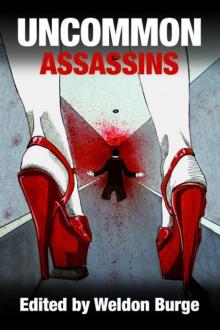 Uncommon Assassins
Uncommon Assassins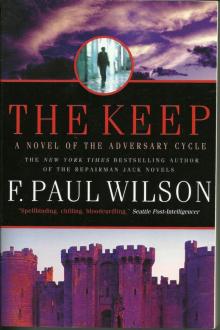 Adversary Cycle 01 - The Keep
Adversary Cycle 01 - The Keep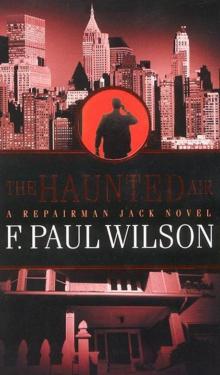 Repairman Jack 06 - The Haunted Air
Repairman Jack 06 - The Haunted Air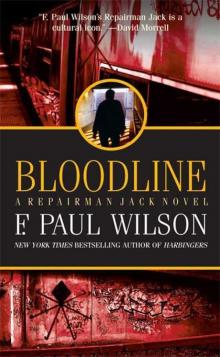 Bloodline rj-11
Bloodline rj-11 Ultimate Supernatural Horror Box Set
Ultimate Supernatural Horror Box Set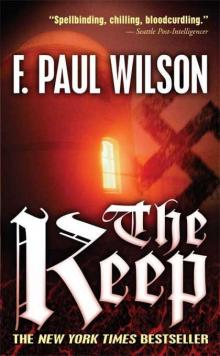 The Keep ac-1
The Keep ac-1 Repairman Jack 04 - All the Rage
Repairman Jack 04 - All the Rage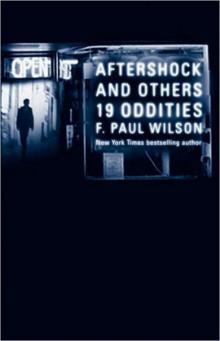 Aftershock & Others
Aftershock & Others All the Rage rj-4
All the Rage rj-4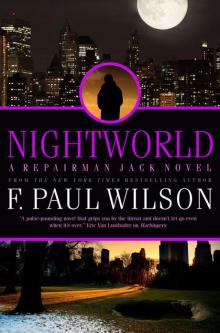 Nightworld (Adversary Cycle/Repairman Jack)
Nightworld (Adversary Cycle/Repairman Jack)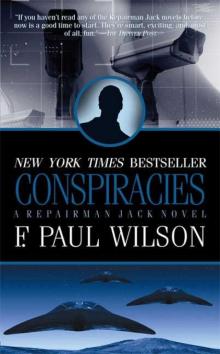 Conspircaies rj-3
Conspircaies rj-3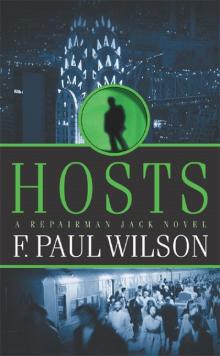 Hosts rj-5
Hosts rj-5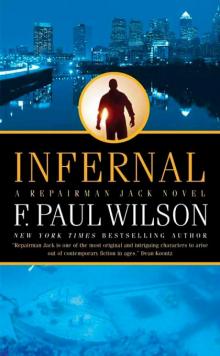 Infernal rj-9
Infernal rj-9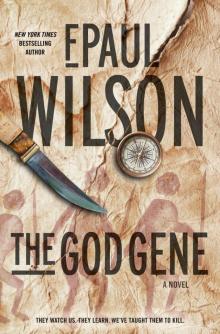 The God Gene: A Novel (The ICE Sequence)
The God Gene: A Novel (The ICE Sequence)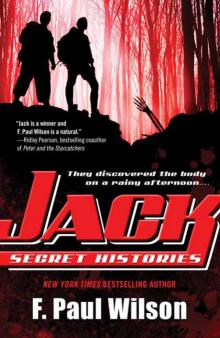 Secret Histories yrj-1
Secret Histories yrj-1